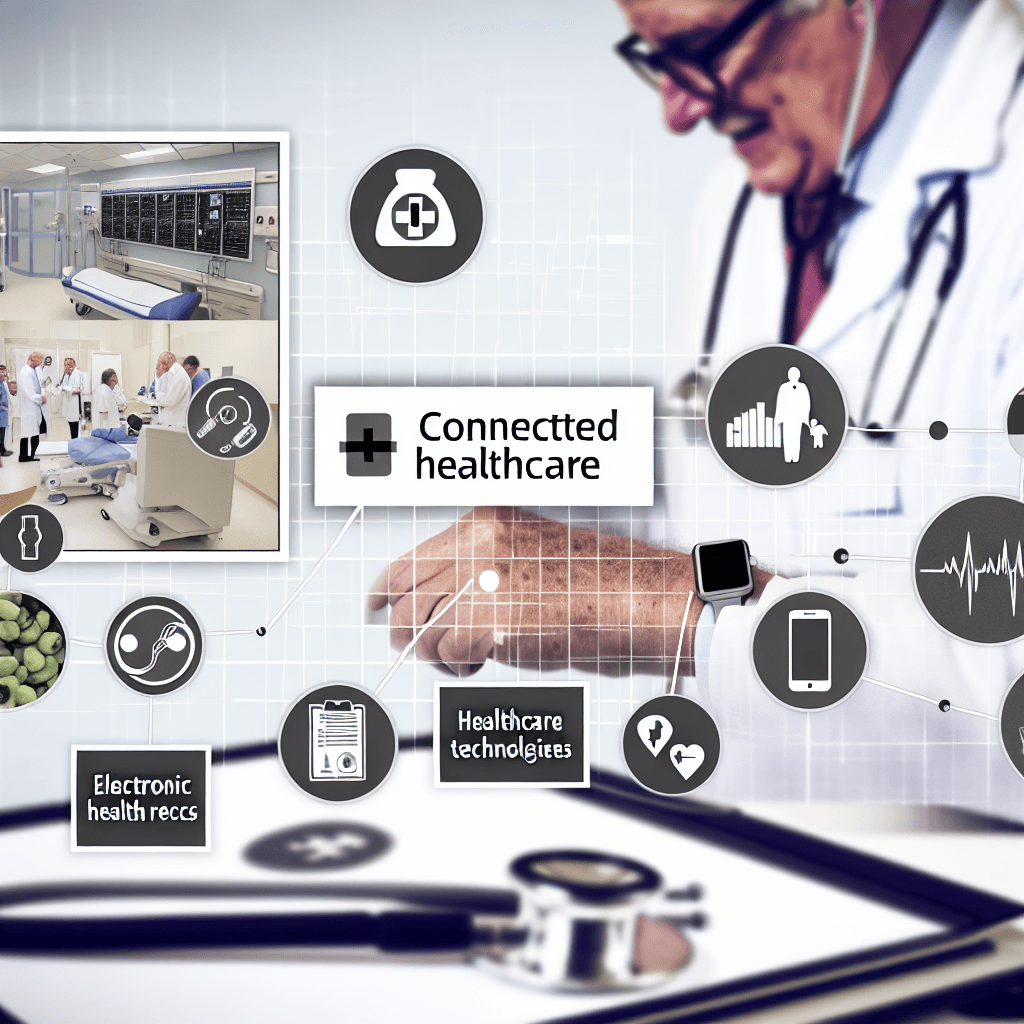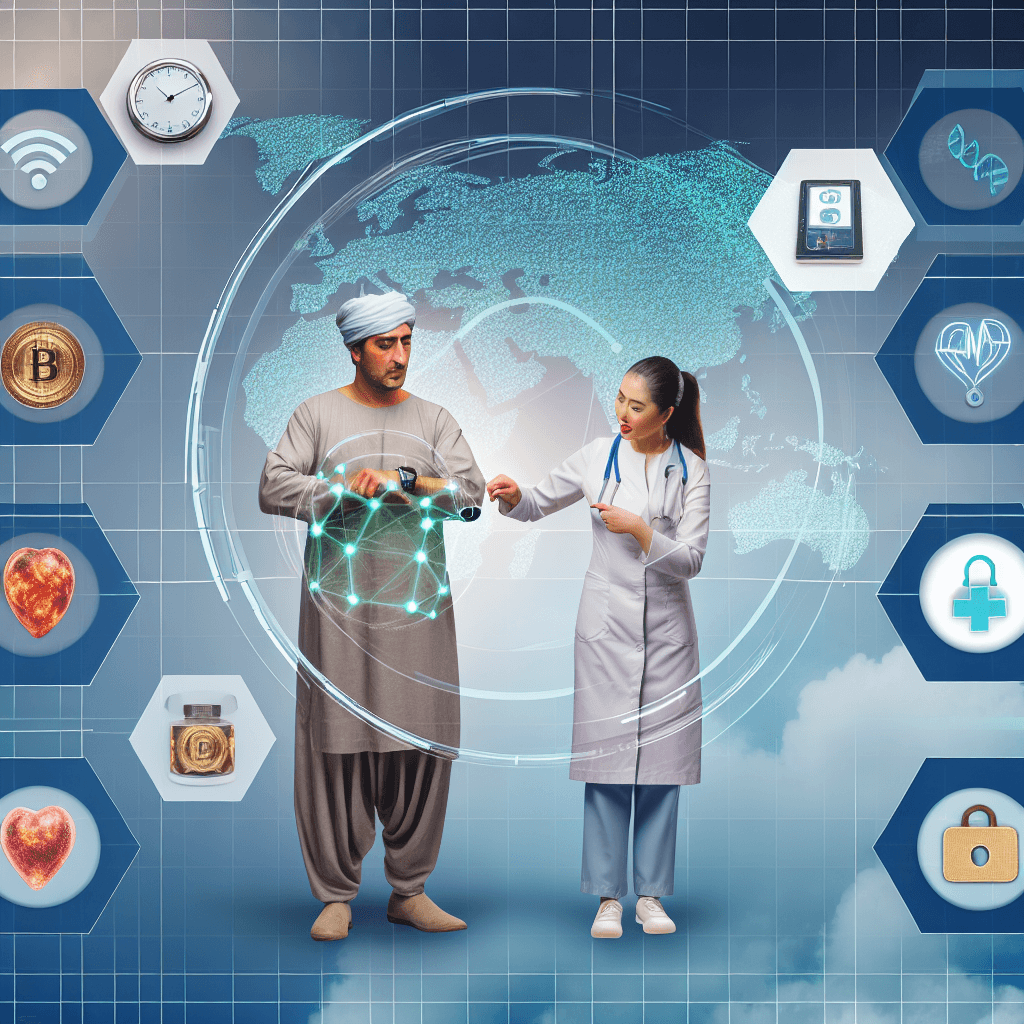Explore the growing connected healthcare market, where technology and medical care merge to enhance patient outcomes globally.
Connected Healthcare Market

Table of Contents
Exploring the Connected Healthcare Market: Trends, Challenges, and Future Prospects

The connected healthcare market is rapidly transforming the landscape of medical care, integrating technology with traditional healthcare practices to enhance the efficiency, accessibility, and effectiveness of medical services. This article delves into the current trends, significant challenges, and potential future developments in the connected healthcare sector, providing a comprehensive overview for healthcare professionals, technology enthusiasts, and investors alike.
Understanding Connected Healthcare
Connected healthcare refers to a concerted approach to healthcare delivery that leverages technology to provide a seamless communication flow among patients, healthcare providers, and insurers. This integration encompasses various technologies including telemedicine, wearable devices, mobile health apps, and Internet of Medical Things (IoMT) devices, all aimed at facilitating better patient outcomes and optimizing healthcare processes.
Current Trends in the Connected Healthcare Market
The connected healthcare market is characterized by several emerging trends that are shaping its growth and development:
- Telemedicine: The use of telecommunication technology to provide clinical health care from a distance has seen a significant uptick, especially highlighted during the COVID-19 pandemic.
- Wearable Health Devices: Devices such as fitness trackers, glucose monitors, and heart rate sensors are becoming increasingly sophisticated, providing real-time data to both patients and healthcare providers.
- Increased Data Integration: There is a growing emphasis on the integration of data from various sources to provide a holistic view of patient health, enhancing personalized treatment plans.
- AI and Machine Learning: These technologies are being increasingly employed to analyze vast amounts of health data, leading to improved diagnostics, predictive analytics, and patient care management.
Case Studies Highlighting Impact
Several case studies illustrate the transformative impact of connected healthcare solutions:
- Remote Patient Monitoring: Systems like Philips eICU program have been instrumental in providing critical care services remotely, significantly reducing ICU mortality rates and hospital stays.
- Wearable Technology in Chronic Disease Management: Companies like Fitbit and Apple have developed devices that not only track fitness but also monitor vital health parameters such as blood oxygen levels and heart rhythms, aiding in early detection and management of chronic conditions.
- Blockchain for Health Data Security: Blockchain technology is being explored for secure patient data exchange, enhancing privacy and reducing fraud in healthcare transactions.
Challenges Facing the Connected Healthcare Market
Despite its potential, the connected healthcare market faces several challenges that could impede its growth:
- Data Privacy and Security: The increasing amount of health data being generated and shared raises significant concerns regarding data protection and patient privacy.
- Integration with Existing Healthcare Systems: There is often resistance and technical challenges associated with integrating new technologies into existing healthcare infrastructures.
- Regulatory Compliance: Navigating the complex landscape of healthcare regulations remains a significant hurdle for connected healthcare providers.
- Digital Divide: There is a risk that the benefits of connected healthcare may not be equally accessible to all, particularly in rural or underprivileged areas.
Future Prospects of Connected Healthcare
The future of connected healthcare looks promising with several developments on the horizon:
- Expansion of AI Capabilities: Further advancements in AI will likely lead to more personalized and predictive healthcare solutions.
- Global Health Initiatives: There is a growing focus on using connected healthcare solutions to address global health challenges, particularly in developing countries.
- Interoperability Standards: Enhanced standards for interoperability among different healthcare systems and devices are expected to improve the efficiency and effectiveness of connected healthcare services.
Conclusion
The connected healthcare market is set to redefine the paradigms of healthcare delivery. With its ability to integrate various technological tools and platforms, it promises enhanced patient care, improved health outcomes, and more efficient healthcare systems. However, addressing the challenges of data security, system integration, and equitable access will be crucial for realizing the full potential of connected healthcare. As the sector continues to evolve, staying informed and adaptable will be key for all stakeholders involved.
In conclusion, while the journey ahead is fraught with challenges, the opportunities presented by connected healthcare are immense. Stakeholders must collaborate to overcome these challenges and harness technology’s power to create a more efficient, effective, and inclusive healthcare system.








